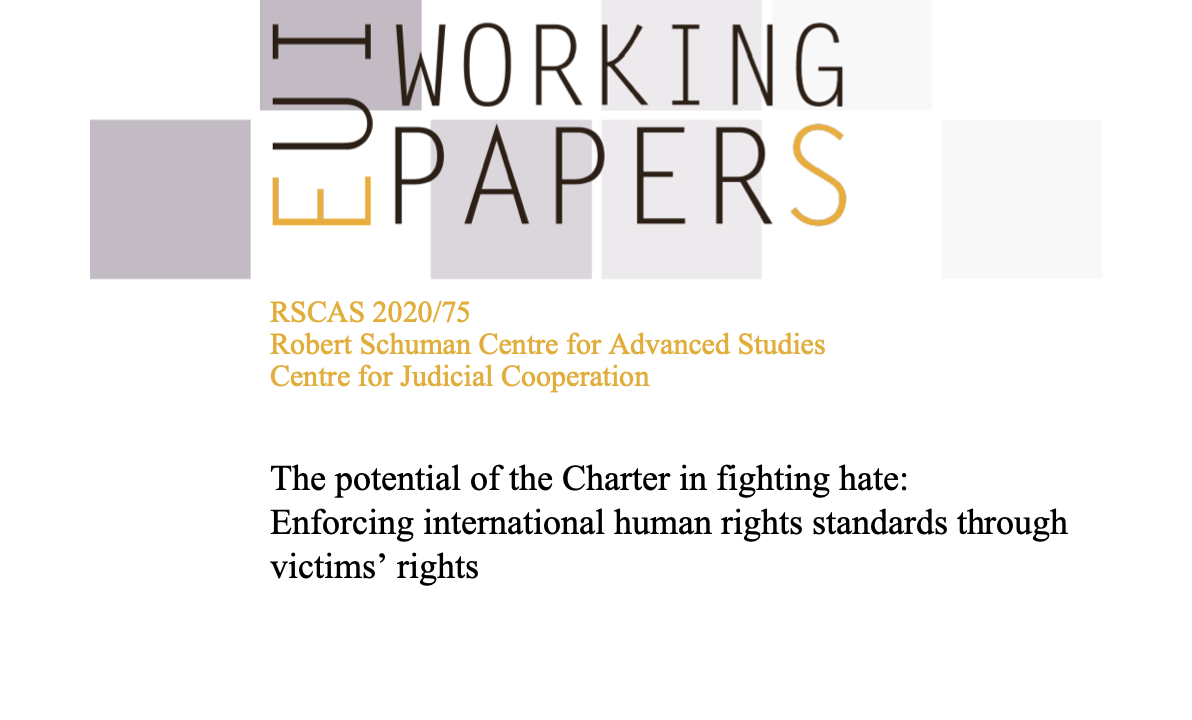The potential of the Charter in fighting hate: Enforcing international human rights standards through victims’ rights
Rita Gião Hanek and Lilla Farkas
Abstract
Analysis of the EU non-discrimination acquis tends to be limited to the gender equality and non- discrimination directives, showing a gaping difference in the level of protection accorded to certain groups over others. Broadening the perspective to procedural and soft law measures pertaining to criminal forms of discrimination can, however, yield more nuanced insights. The working paper documents the emergence of a ‘continuum of equality’ in the criminal branch of EU anti-discrimination law, particularly in the Victims’ Rights Directive. It shows that the Charter of Fundamental Rights of the EU can play an important role in approximating EU norms to international human rights standards and offer strategies for addressing legislative deadlock to equalize protection across discriminated groups. Rather than the prohibition of discrimination, Charter provisions governing the relationship between EU and international norms become significant in this process.

